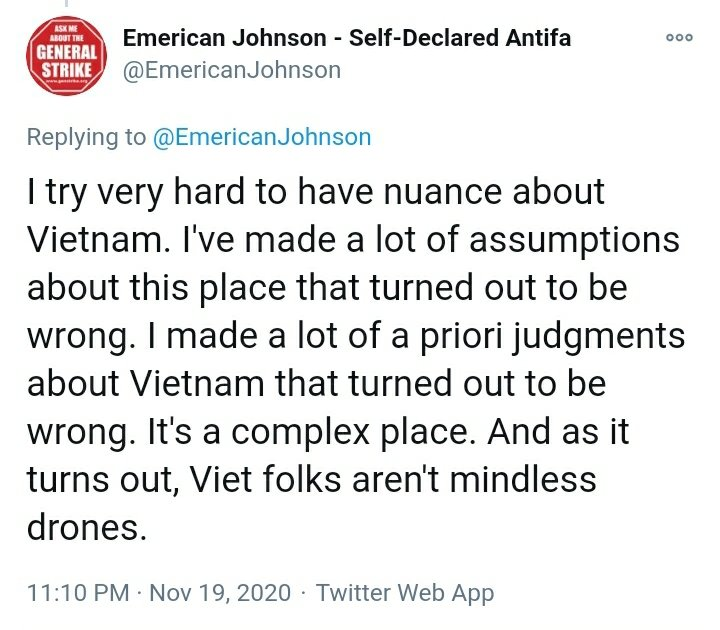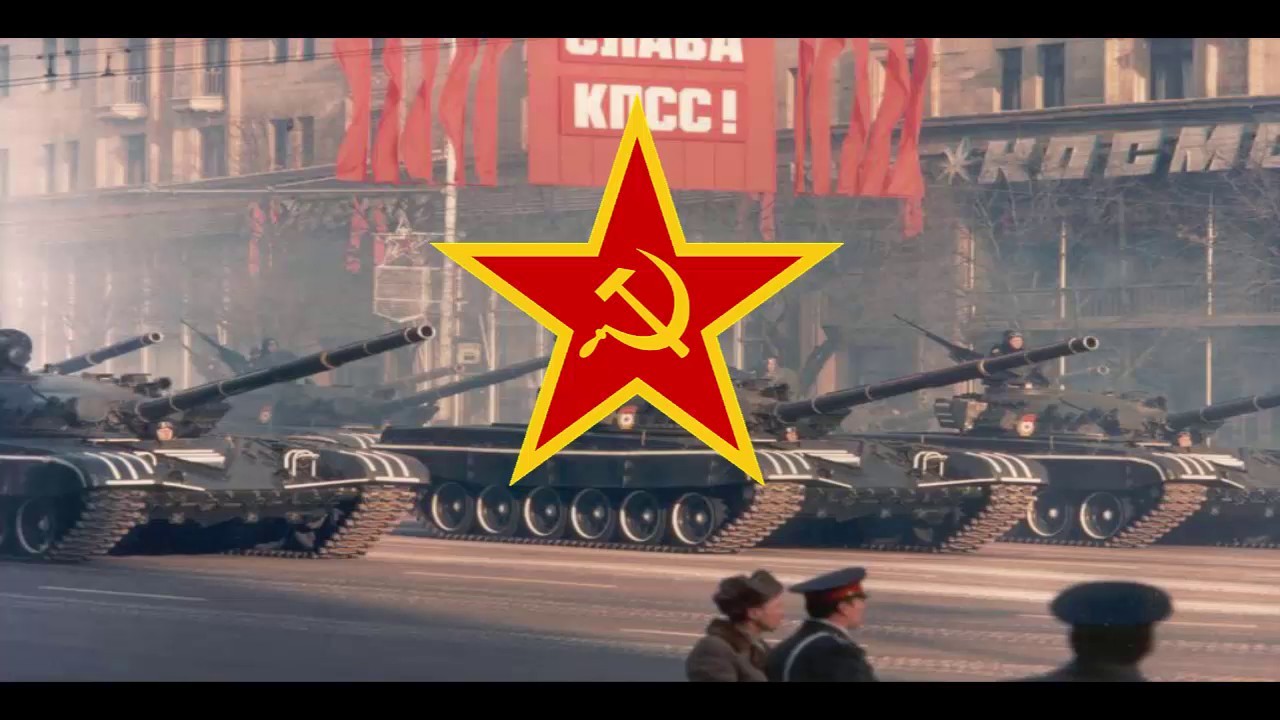I know this is a shitpost, but I wanna clarify for anyone who might instantly assume, Emerican Johnson is about the coolest anarchist you can find in these spaces online. His partner (Luna Oi) is an ML and he critically supports Vietnam and other AES states. He’s under no delusion that Vietnam will just become an-com or something, and he comes together with Marxists/MLs/anarchists/etc to support productive discourse.
Yeah he’s honestly pretty decent. He’s about as non-sectarian as they come.
If only they would press the ancom button, then independent communes would pop up overnight and everything would be solved! It’s so simple!
“I wish Vietnam would just lay down its arms. It’s not like the US would ever invade, right??”
What you talking about?
Having loads of disunited, ineffective militias is a viable strategy to defending your state
How war works without democratic centralism:
Command hierarchy to a federated anarchist militia: “We need you to get to this region asap to defend against an enemy advance.”
anarchist militia: “no”
Command hierarchy: “okay thanks.”
Loses war instantly
And why so? Why would they say no?
Hundreds of potential reasons, they want to protect a specific town rather than contribute to a greater war effort, etc. From parenti:
Engels offers an apposite account of an uprising in Spain in 1872-73 in which anarchists seized power in municipalities across the country. At first, the situation looked promising. The king had abdicated and the bourgeois government could muster but a few thousand ill-trained troops. Yet this ragtag force prevailed because it faced a thoroughly parochialized rebellion. “Each town proclaimed itself as a sovereign canton and set up a revolutionary committee (junta),” Engels writes. “[E]ach town acted on its own, declaring that the important thing was not cooperation with other towns but separation from them, thus precluding any possibility of a combined attack [against bourgeois forces].” It was “the fragmentation and isolation of the revolutionary forces which enabled the government troops to smash one revolt after the other.”
Decentralized parochial autonomy is the graveyard of insurgency–which may be one reason why there has never been a successful anarcho-syndicalist revolution. Ideally, it would be a fine thing to have only local, self-directed, worker participation, with minimal bureaucracy, police, and military. This probably would be the development of socialism, were socialism ever allowed to develop unhindered by counterrevolutionary subversion and attack. One might recall how, in 1918-20, fourteen capitalist nations, including the United States, invaded Soviet Russia in a bloody but unsuccessful attempt to overthrow the revolutionary Bolshevik government. The years of foreign invasion and civil war did much to intensify the Bolsheviks’ siege psychology with its commitment to lockstep party unity and a repressive security apparatus. Thus, in May 1921, the same Lenin who had encouraged the practice of internal party democracy and struggled against Trotsky in order to give the trade unions a greater measure of autonomy, now called for an end to the Workers’ Opposition and other factional groups within the party. “The time has come,” he told an enthusiastically concurring Tenth Party Congress, “to put an end to opposition, to put a lid on it: we have had enough opposition.” Open disputes and conflicting tendencies within and without the party, the communists concluded, created an appearance of division and weakness that invited attack by formidable foes.
Only a month earlier, in April 1921, Lenin had called for more worker representation on the party’s Central Committee. In short, he had become not anti-worker but anti-opposition. Here was a social revolution–like every other–that was not allowed to develop its political and material life in an unhindered way.
OK So if I understand properly, you just think anarchism is too idealistic? (tell me if I misunderstand). How would corruption (and abusive centralization in general) be avoided in communism?
There’s a good marxism study plane here if you’d like to get started with democratic centralism.
Sorry, I will read some of them, but I don’t have so much time now. What is the most successful example of marxism in your opinion?
BTW, Dessalines seems to have done an amazing job here!
If he’s living in Vietnam as an immigrant doesn’t that mean he is no longer a settler?
To me an immigrant isn’t necessarily a settler, unless they displace the current inhabitants, or they want to replace their systems of governance / impose their own worldview on a people who have no interest in it. Vietnamese people had no use for petite-bourgeois anarcho-communism in the past, and have no use for it today. He’s probably not as bad as someone calling for regime change or an overthrow of the CPV, but he should leave his petit-bourgeois ideology and the door and learn about why the vietnamese people chose and continue to choose marxism-leninism.
And why would it be so better?
Typical Anarchist mentality, believing that things will change just from wishful thinking.
lol another one from him…

Lot to unpack there.
hey im not going to trash a westerner for realizing his head is full of shit
digging shit out of your brain as an american is full time work
I’d be interested to hear how they think “moving towards ancom” would improve the country.
White liberals would be more likely to accept it? Thats all I can think of.
Don’t they already somewhat accept it? They make jokes and memes about Vietnam winning the war. It’s the PRC they can’t stand.
You will note a common theme of those they CAN stand. They are weak. They do not threaten the west. Like Vietnam. Cuba. Laos.
The strong ones, they do NOT like. China. USSR. DPRK. The nuclear powers.
You will find they also love the failed revolutions. Like Sankara’s Burkina Faso. https://orinocotribune.com/western-marxism-loves-purity-and-martyrdom-but-not-real-revolution/






